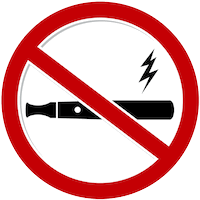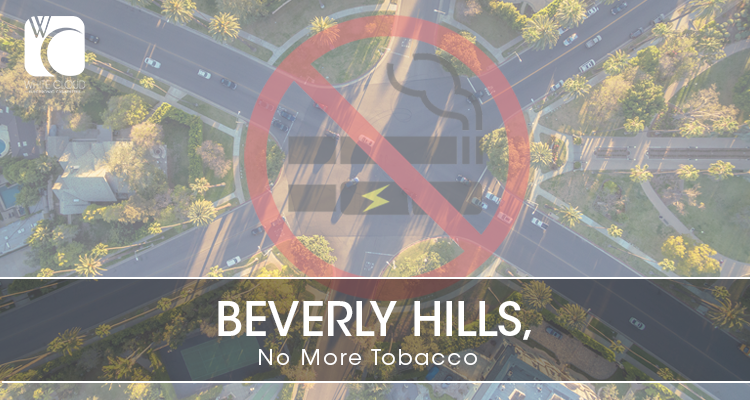For most people, the City of Beverly Hills conjures images of celebrities, Rodeo Drive shopping, and all things luxury – not groundbreaking legislation. However, this year marks the second time the city has become the first to enact strict regulations for tobacco products.
Beverly Hills Makes Headlines Again With Tobacco Ban

In June, the Beverly Hills City Council voted on legislation that essentially creates a tobacco ban for their municipality. The unanimous decision by the Council, expected to take effect in 2021, will remove tobacco products from the shelves of pharmacies, convenience stores, grocery stores, and gas stations.
Naturally, there are certain spaces that are exempt from the ban. Hotels may continue to sell tobacco products, but they will be provided only via concierge or room service. Cigar lounges will also retain their right to supply tobacco products to their posh clientele after Arnold Schwarzenegger’s plea to spare his favorite club. This radical ban is regarded as the strictest in the country.
Historically, Beverly Hills has been at the forefront of tobacco legislation, taking the reins of the small government anti-tobacco movement. In 1987, the City Council, during what they deemed a public health crisis, enacted the United States’ first smoking ban in a public place starting with restaurants, which then paved the way for numerous other municipalities to quickly follow suit and allow the law to expand into most public spaces.
Unsurprisingly, that 1987 decision also provided concessions for the Beverly Hills hotel industry, exempting hotel restaurants, bars and banquet halls from that landmark smoking ban. Smokers are now hard pressed to find a restaurant that allows tobacco or nicotine use indoors. It is expected that this tobacco ban will be the new wave of legislation tackled by local governments across America, once again making Beverly Hills a trendsetter for local government action.
Side Effects of a Tobacco Ban
Proponents of the ban are ecstatic over the decision, anxious to be free of second hand smoke. However, the results of the vote have sparked speculation over whether or not the tobacco ban will actually reduce the overall amount of tobacco or nicotine products being purchased or consumed.
Many critics of the ban believe smokers or nicotine users will only be mildly inconvenienced by the ban due to the relatively small size of the Beverly Hills city limits and will take their money to West Hollywood to purchase the same products. These same critics are also concerned for the local small business owners who rely on tobacco and nicotine sales to keep their convenience stores and gas stations profitable. Without those profits, this ban may eventually lead to layoffs down the line.
Further, critics question the prohibition of sales of products meant to aid in the cessation of smoking. The banned tobacco products include cigarettes, chewing tobacco, and e-cigarettes. E-cigarettes are generally considered as a healthier alternative to tobacco use, and U.S. smoking rates hit a record low with the rise in vaping. Even the American Cancer Society has reversed its stance on vaping, stating that not all smokers will turn to FDA approved cessation medications and that “these individuals should be encouraged to switch to the least harmful form of tobacco product possible.” As cities begin to ban tobacco and nicotine products, people looking to quit the habit will have a tougher time locating sources to aid in their quest to lead a smoke-free life.
Further Local Government Legislation

Since the Beverly Hills City Council vote, several other cities have placed a similar tobacco ban or nicotine product ban on their agendas. Large cities with dense populations, like San Francisco, have piggy-backed onto the trail forged by Beverly Hills and are taking their bans even further.
San Francisco’s Board of Supervisors passed an ordinance that completely prohibits the sale and distribution of e-cigarettes until those products are fully approved by the FDA. The complete prohibition of sales and distribution of e-cigarettes sends a mixed message to consumers, misleading them into believing that, due to their prohibition, e-cigarettes are a greater risk to society than actual tobacco use.
Two more California cities are not too far behind San Francisco in efforts to ban vapor products. As more cities take bolder stances supporting tobacco bans, it will be up to the consumer to ensure their voting power not only is wielded at the federal level, but equally at the state, county and city levels to ensure their views are well represented.






